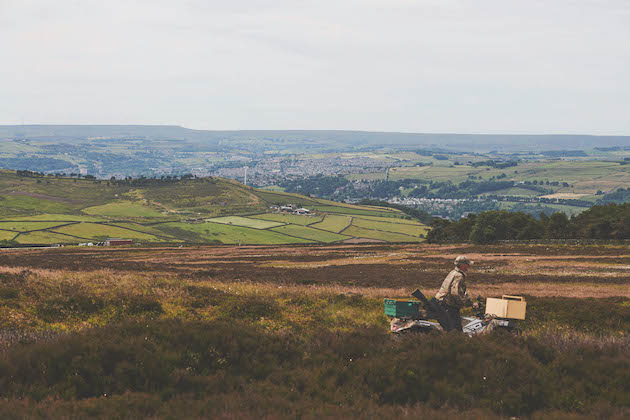Why gamekeepers are the best sustainable farmers
Sustainability is the latest buzzword, but how many of those who use it will acknowledge that gamekeepers are the best sustainable farmers?

The foundation of a good syndicate is competent keepering and getting the right person - amateur or professional - can pay dividends for a shoot
The word ‘sustainability’ is buzzing like a swarm of bees. But what does it mean for fieldsports? The simplest definition of sustainability is this: doing something today in a way that doesn’t detract from it being done in the future.
So if I sell some of my sheep for meat, I leave a good breeding stock behind so I can continue selling sheep in the future. If I were to cull too many at once, I would reduce my breeding herd and its annual production of lambs. On the other hand, if I kept too many sheep for the ground to carry comfortably, both the lambing ratio and weights would drop. Sustainability is a matter of enlightened self-interest. It means thinking about the future and not simply plundering resources for short-term gain.
Best sustainable farmers
Gamekeepers are engaged in a form of extensive, free-range farming, which should be welcomed by the green blob as a sustainable land use. It is better for the environment than intensive farming. Game interests help to knock the sharp edges off intensive agriculture, providing space for wildlife within our heavily used farmland.
But not all of the nature conservation establishment agrees with the GWCT’s dictum, “conservation through wise use”. To some, no use at all is the aim. In their unnatural utopia, animals must never be killed to meet human needs.
Yet healthy quarry populations and sustainable hunting are two sides of the same coin. This is especially so in the case of truly wild quarry, such as grouse, deer or wildfowl. It gets complicated by concepts such as compensatory mortality, which are themselves subject to all sorts of variables – weather, for example. But the basic principle of a sustainable harvest is much the same for wild quarries as it is for livestock farming: take enough for your needs today, without compromising your ability to do the same in the future.
In the context of wildfowling, Adaptive Harvest Management (ADH) sounds enticing. It means modifying your hunting harvest in line with fluctuations in quarry populations. It is well established in the US, where the organisation Ducks Unlimited was formed to ensure the supply of wildfowl. But then, the US contains an entire continental wildfowl flyway, whereas here in the UK we host migratory wildfowl that cross many international boundaries.
And there is a further, critical, distinction: in the US, state fish and game regulators are funded by hunting permits. In a not dissimilar way, here in the UK, the Environment Agency (EA) is part-funded by rod licences. The EA tends to regard anglers as customers, with a common interest in husbanding fish stocks and improving aquatic habitats. It releases coarse fish and actively promotes recreational fishing. Sadly, the same cannot be said of other UK regulators, such as Natural England (NE). Can anybody imagine NE releasing, say, grey partridges and promoting shooting?
To many shooters, NE seems all stick, no carrot. They say it acts as though hunting sports are barely tolerated at best. This ideological chasm undermines NE’s ability to work in partnership to deliver practical nature conservation.








